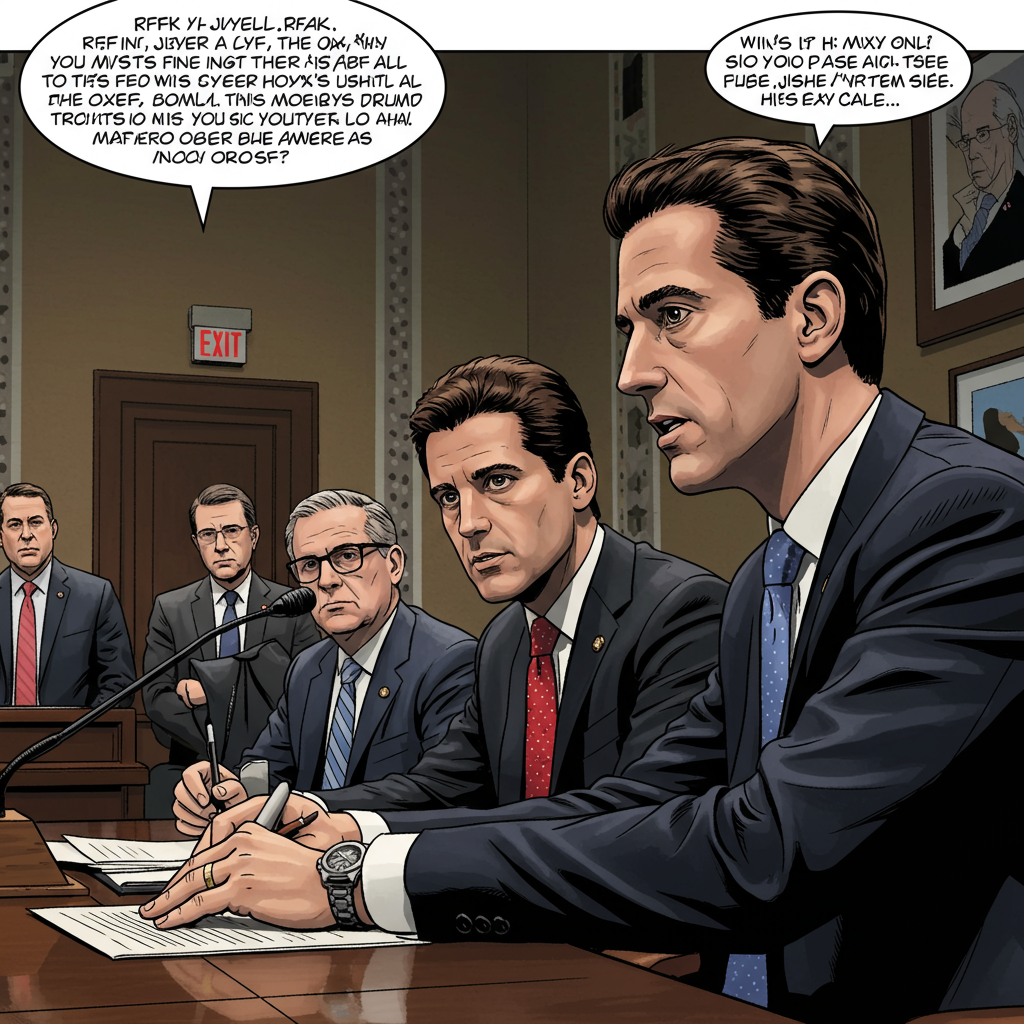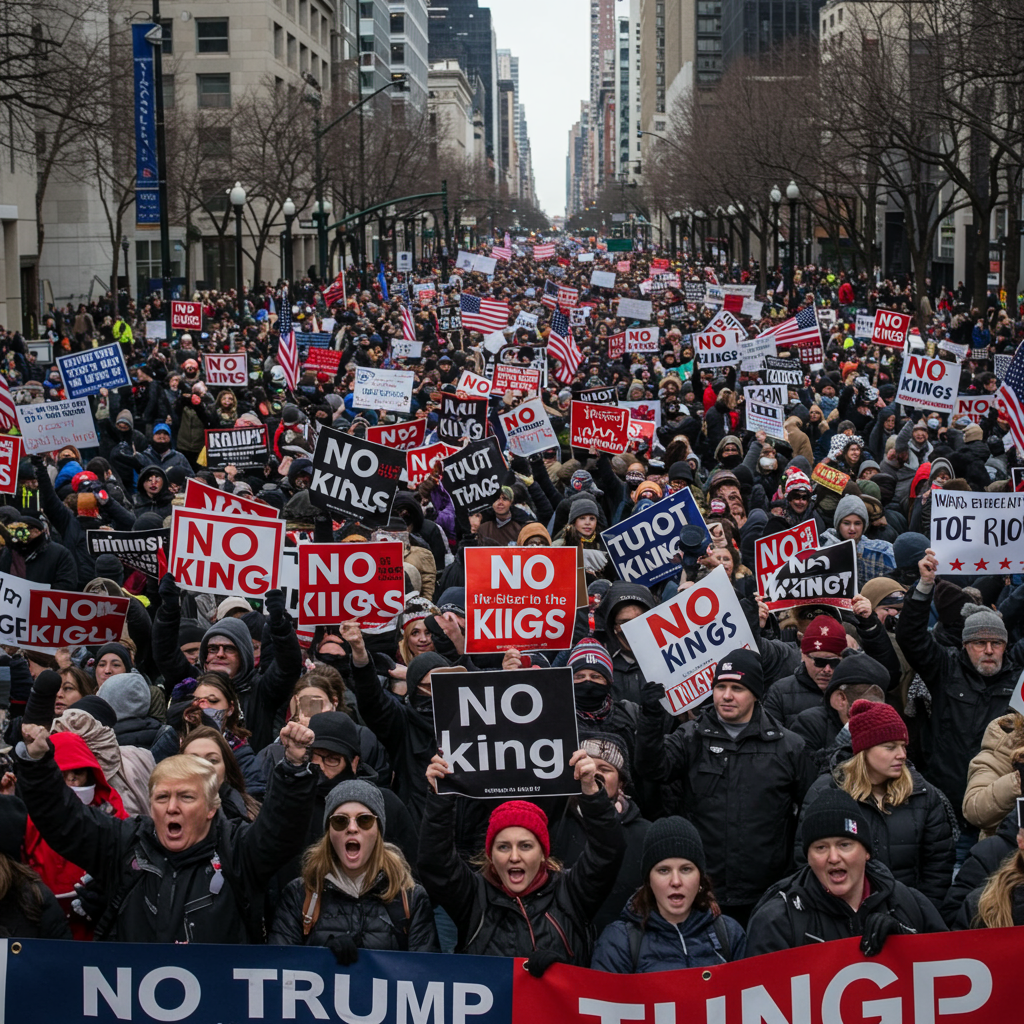U.S. Health and Human Services (HHS) Secretary Robert F. Kennedy Jr. recently faced intense scrutiny during a Senate Finance Committee hearing on Thursday, September 4, 2025. This contentious session, marked by combative exchanges and deep bipartisan concern, highlighted a growing crisis within his department. From significant policy shifts to leadership shake-ups and questions surrounding vaccine access, the hearing offered crucial insights into the direction of federal public health under Kennedy’s leadership.
The stakes were undeniably high. Kennedy’s department was already embroiled in controversy, including the abrupt dismissal of the Centers for Disease Control and Prevention (CDC) director just weeks after her confirmation, the reevaluation of vaccine access protocols, and the cancellation of $500 million in mRNA vaccine research. These actions have triggered alarm bells across the political spectrum, with both Republicans and Democrats voicing strong concerns. This rewrite delves into five key takeaways from this pivotal congressional encounter.
Political Maneuvering: Senators Attempt to Isolate Kennedy from Trump
A significant undercurrent of the hearing involved senators’ attempts to drive a wedge between Secretary Kennedy and former President Trump. This tactic, often seen in Washington, saw both Republicans and Democrats subtly framing their questions to suggest Kennedy was undermining one of Trump’s signature achievements: Operation Warp Speed, the COVID-19 vaccine initiative.
Senator Bill Cassidy, a Republican doctor who initially backed Kennedy’s confirmation, led this charge. Cassidy, who now faces primary threats, began by pointedly asking if Trump deserved a Nobel Prize for Operation Warp Speed. Kennedy readily agreed, calling the effort “phenomenal.” However, Cassidy quickly pivoted, highlighting Kennedy’s past critical remarks on Warp Speed vaccines, his efforts to limit their availability, and the recent cut to mRNA vaccine research funding. “This just seems inconsistent,” Cassidy noted, emphasizing Trump’s “tremendous amount of credit.”
Democrats, including Senator Maria Cantwell, echoed this sentiment, acknowledging Warp Speed as a “monumental achievement.” Despite Kennedy’s general evasiveness, he conceded to Trump’s credit. A significant blow landed when Kennedy refused to quantify the lives saved by Warp Speed vaccines, declining even to agree it saved a million, stating only “quite a few.” Senator Maggie Hassan seized on this, asserting, “Unfortunately, you are undermining one of the president’s biggest achievements.” This exchange reinforced a message for Trump: Kennedy might not be a loyal ally. Adding to the tension, Trump had recently posted critical remarks about the CDC, implicitly questioning the agency’s current direction under Kennedy.
Bipartisan Alarm: Republicans Express Deep Vaccine Policy Concerns
While Senator Cassidy took the most aggressive stance among Republicans, he wasn’t alone in expressing misgivings about Kennedy’s vaccine-related decisions. Other GOP senators offered more measured, yet pointed, warnings, signaling a significant shift in Republican sentiment since Kennedy’s confirmation.
Senator John Barrasso, the chamber’s No. 2 Republican and an orthopedic surgeon, voiced “deep concern” that Kennedy was jeopardizing safe, proven vaccines like those for measles and hepatitis B. He argued that such moves could “put Americans at risk and reverse decades of progress.” Barrasso referenced recent measles outbreaks and suggested Kennedy consider George Washington’s decision to support smallpox vaccinations—a clear parallel implying Kennedy should re-evaluate his position.
Senator Thom Tillis also challenged Kennedy, suggesting the Secretary had “violated his promises on vaccines” made during his confirmation hearings. Tillis noted that Kennedy’s current statements appeared to “contradict” his earlier assurances. Both Barrasso and Tillis, though not demanding immediate responses, were clearly “laying markers” for future oversight. This shift indicates that Kennedy’s long-standing vaccine skepticism, once a minor concern for some Republicans, has now become a central point of contention across the aisle. Concerns also stem from Kennedy’s prior confirmation hearings, where he faced scrutiny over his extensive public record questioning vaccine safety, despite claiming to be “pro-safety” and not “anti-vaccine.”
A Combative Stance: Kennedy Confronts Senators Head-On
The hearing was notable for Secretary Kennedy’s exceptionally combative demeanor. His aggressive approach—whether a response to pressure or a calculated strategy—was consistently striking. Throughout the proceedings, Kennedy adopted a confrontational posture, often interrupting or directly challenging senators.
When pressed by Senator Cassidy on Operation Warp Speed, Kennedy retorted, “Is this a question, Senator Cassidy, or is this a speech that you don’t want me to answer?” Later, when Cassidy claimed Kennedy’s actions effectively denied people vaccines, the Secretary shot back, “You’re wrong.”
Kennedy frequently accused Democratic senators of “making stuff up.” He told Senator Tina Smith, “You’re just making stuff up” when she referenced his past comments linking school shootings to antidepressants. He dismissed Senator Ben Ray Luján’s questions about autism research as “gibberish” and told another, “I don’t know what you’re talking about.” In a particularly heated exchange, when Senator Raphael Warnock questioned Kennedy’s rhetoric prior to a deadly shooting at the CDC, Kennedy provocatively asked, “Are you complicit in the assassination attempts on President Trump?” This aggressive style underscored the deep divisions and high emotional stakes of the hearing.
Vaccine Access Under Fire: Kennedy Struggles to Reconcile Promises with Policy
One of the most significant policy disputes revolved around vaccine access—a critical issue impacting the future of HHS and the CDC. During his January confirmation hearings, Kennedy made a clear, broad promise: “I will do nothing as HHS Secretary that makes it difficult or discourages people from taking vaccines.” However, recent HHS actions have seemingly contradicted this pledge.
Under Kennedy’s leadership, the FDA narrowed the approval of annual COVID-19 shots, largely limiting them to seniors or younger individuals with underlying health risks. This policy shift created confusion and barriers, even for parents seeking to vaccinate healthy children. Kennedy consistently walked a fine line during questioning. Rather than upholding his previous promise about ease of access, he emphasized that vaccines would still be available “somehow.”
When Senator Cassidy presented a social media post from commentator Erick Erickson, whose wife with Stage IV lung cancer was reportedly denied a COVID vaccine due to HHS changes, Kennedy insisted it was “wrong” that people were being denied. However, Erickson maintained his account, stating his wife was indeed turned away. Under intense questioning from Senator Elizabeth Warren, Kennedy ultimately suggested that continued availability “in some form” was sufficient. “I’m not taking vaccines away from anybody,” he asserted. Yet, he tacitly admitted that narrowing approval complicated access, acknowledging that availability at pharmacies “depends on the state” because many states legally bar pharmacists from administering vaccines outside CDC advisory panel endorsements. Senator Tillis was notably unimpressed, stating, “There seem to be several reports that would seem to refute” Kennedy’s earlier promise.
The Monarez Controversy: A Sign of Future Investigations
An early exchange in the hearing involving the recently ousted CDC Director, Dr. Susan Monarez, foreshadowed potential future investigations. In a Wall Street Journal op-ed published the same day, Monarez claimed that during an August meeting with Kennedy, she was “told to preapprove the recommendations” of a vaccine advisory committee populated by Kennedy’s handpicked vaccine skeptics.
Kennedy flatly denied Monarez’s account, repeatedly stating, “I did not say that to her” and accusing her of lying. Unlike many witnesses who might offer nuanced explanations, Kennedy’s denial was absolute. Monarez’s attorneys promptly responded, confirming she “stands by” her account and “would repeat it all under oath.”
This direct contradiction sets the stage for further congressional scrutiny. It’s highly probable that other committees, such as Senator Cassidy’s Senate health committee, will delve deeper. Both Monarez and Jim O’Neill, a top HHS official present at the meeting and now the acting CDC director, could be called to testify. Kennedy also acknowledged instructing Monarez to fire senior CDC officials, accusing the agency’s scientists of “unsound recommendations” during the pandemic, further indicating a major overhaul. This episode underscores the deep mistrust and power struggles within the nation’s top public health agencies.
Broader Implications and Looming Concerns for HHS
Beyond the immediate controversies of the hearing, deeper concerns about Secretary Kennedy’s suitability for the role continue to surface. During his confirmation process, significant issues emerged regarding his financial connections and potential conflicts of interest. Senate Democrats, particularly Senators Ron Wyden and Elizabeth Warren, pressed Kennedy on his plan to divest his financial stake in an ongoing vaccine lawsuit to his adult son, Connor Kennedy. Connor, an attorney at a firm representing plaintiffs in a lawsuit against the HPV vaccine Gardasil, could collect future referral fees. This arrangement was criticized as “troubling” and “inadequate,” potentially allowing an “immediate family member to benefit financially” from Kennedy’s position, thereby creating a direct conflict of interest. Wyden and Warren warned that Kennedy could leverage his authority to influence such litigation outcomes, indirectly benefiting himself through his son.
Furthermore, Kennedy’s grasp of critical HHS programs appeared unclear during his earlier confirmation hearings. He inaccurately claimed that Medicaid was “not working” due to “high premiums and deductibles,” despite the program typically having neither. He also contended that the National Institutes of Health (NIH) barely studied chronic diseases, a claim refuted by the NIH’s numerous dedicated institutes and centers. His shifting stance on vaccines—from years of publicly questioning their safety and effectiveness to pledging support for them during confirmation—has also drawn bipartisan skepticism. These issues, combined with his combative hearing performance, paint a picture of an HHS Secretary whose leadership is already highly contentious and whose policies are expected to continue facing intense scrutiny.
Frequently Asked Questions
What were the main controversies surrounding Robert F. Kennedy Jr.’s HHS hearing?
The hearing was fraught with controversy, primarily stemming from Kennedy’s policy changes within HHS, including the abrupt firing of the CDC Director, limiting COVID-19 vaccine access, and canceling mRNA vaccine research. Senators from both parties also grilled Kennedy on his combative demeanor, his past vaccine skepticism conflicting with current policy, and his stance on Trump’s Operation Warp Speed. Accusations of lying against the former CDC director further fueled tensions.
How have Kennedy’s actions impacted COVID-19 vaccine access for the public?
Under Secretary Kennedy’s leadership, the FDA narrowed the approval of annual COVID-19 shots, primarily limiting them to seniors or younger individuals with specific health risks. While Kennedy maintains vaccines are still available, this policy shift has created significant barriers for the general public, including healthy children, who previously had broader access. He conceded that ease of access at pharmacies now “depends on the state” due to legal limitations on pharmacists outside CDC advisory panel endorsements.
Should I be concerned about the future of vaccine policy under the current HHS leadership?
Concerns about vaccine policy under Secretary Kennedy’s leadership are widespread, voiced by both Democratic and Republican senators. Critics point to his past history of questioning vaccine safety, his department’s recent policy changes that have restricted access to certain vaccines, and the cancellation of mRNA vaccine research. These actions suggest a potential shift in federal public health strategy, raising questions about the future of vaccine recommendations and accessibility, which could impact public health initiatives and trust in federal health agencies.
Conclusion
The recent Senate Finance Committee hearing served as a stark demonstration of the deep-seated tensions and profound policy disagreements surrounding Health and Human Services Secretary Robert F. Kennedy Jr. His combative testimony, coupled with significant shifts in federal public health strategy and concerns about his leadership, has set the stage for continued conflict. As Congress weighs further probes into his actions, particularly concerning vaccine access and the abrupt dismissal of the CDC Director, the future direction of HHS remains highly uncertain. This pivotal hearing underscores that the impact of Kennedy’s tenure will be closely watched, with far-reaching implications for public health and scientific integrity in the United States.



